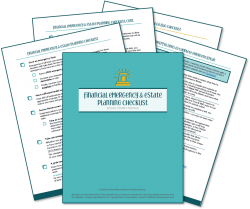If you own a home or are in the market to buy one, you know that your house is likely the biggest investment you’ll ever make. So, of course it makes sense to protect your property against damage or disaster with a quality insurance policy. (Plus, you’re probably required to do so by your mortgage company…) But that doesn’t mean you can’t get the best price on your home insurance!
Coverage doesn’t have to cost you a fortune. You can get the best price without compromising your peace of mind.
Here are our top tips to reduce your insurance premiums while keeping the coverage you really need.
Table of Contents
Smart Ways to Save on Home Insurance
1 – Do Your Homework
Shopping for home insurance isn’t how most mamas choose to spend their time. But the cost of home insurance policies can be very different from one company to the next.
Comparing prices is the easiest way to save on your home insurance premiums. Get quotes from at least three separate companies to get a range of options. This is quick and easy to do with a service like, Policygenius, that pulls quotes from multiple quality insurance providers at once. Consider the cost of each and review discounts that might be available.
2 – Choose a Higher Deductible
Just like car insurance and health insurance, homeowners insurance comes with a deductible. A deductible is the amount of money you must pay toward a claim before your insurance company pays its part.
Generally, the higher the deductible, the lower your premium will be. According to the Insurance Information Institute, increasing your deductible from $500 to $1,000 could cut 25% off the cost of your home insurance. Just make sure your emergency fund can at least cover your deductible!
3 – Save with Discounts
Insurance companies can offer several discounts to lower your premiums. If your insurer doesn’t publish discounts, ask if there are any available.
The most common home insurance discounts to look for are:
- Insuring a brand-new home
- Bundling home and auto
- Homes made of fire-resistant material
- Long-term customer
- Sprinkler systems
- Roof replacement
- Monitored fire and burglar alarm
- Paying annual premiums instead of monthly
You could also cash in on savings if your mortgage is paid in full or you opt for paperless billing.
4 – Shop Around Every Few Years
Home insurance isn’t usually at the top of your mind. However, it isn’t something you “set and forget.”
Policy options can change and different companies can have different underwriting guidelines. Saving money on home insurance could be as straightforward as shopping around every year or two.
To make it easier, check out Policygenius. Policygenius is a comparison site that gives you fast and easy access to multiple home insurance quotes. Compare companies side-by-side to get a great policy for a great price.
5 – Improve Your Credit Score
The National Association of Insurance Commissioners reports that 85% of home insurance companies use credit scores in their underwriting process.
Insurers have found that people with high credit scores are less likely to file a claim. They’re also more likely to make on-time payments.
So, like it or not, a poor credit score can drive up your rates. If it’s less than perfect, take steps to improve your score before you shop for home insurance.
6 – Bundle Your Insurance Policies
Insurance companies can offer big discounts when you bundle your policies together, making this a quick way to save on home insurance.
When you shop around and compare prices, bundling your homeowners and auto insurance could lower your cost by 20%.
7 – Understand Riders, Terms, and Exclusions
What’s covered and what’s not is a big part of how much you pay for home insurance. Understanding riders, terms, and exclusions can go a long way to making sure you’re getting a good price.
You might think you’re getting a great deal only to find out your policy doesn’t cover anything having to do with pets. If you’re part of the 67% of households in the U.S. that own a pet, that could be a real problem.
Flood insurance is another example. Most homeowners mistakenly believe home insurance covers flooding. However, you must have flood insurance to protect against flood damage.
8 – Reduce Your Risk with Home Upgrades
For home insurance, having less risk can decrease the cost of your policy. Home improvements and upgrades can give you peace of mind while keeping more money in your pocket. Some risk-reducing ideas you could consider are:
- Install a security or alarm system
- Replace your roof
- Upgrade electrical systems
- Replace pipes and plumbing fixtures
- Install newer heating and AC units
- Put in storm shutters to protect against weather events
- Invest in a fire alarm and sprinkler system
Upgrades like these cost a little upfront, but the expense can be worth it if you think of the money you’ll save from lower home insurance rates.
9 – Keep Claims to a Minimum
Insurance claims can increase the cost of home insurance. Although, it depends on the type of claim, the amount, and how many claims you’ve filed before.
Remember: just because you have home insurance doesn’t mean it makes sense to use it. For instance, if you have a $1,000 deductible, filing a claim for $1,500 will only give you $500 from your insurance.
You might think $500 is worth it. But consider that some insurers give “claim-free” discounts if no claims are filed for a few years. Often, that $500 isn’t worth giving up your policy discount.
10 – Outdoor Toys
How much you pay for home insurance depends on several factors, such as location, the size and age of the home, and type of construction.
But did you know that your choice of outdoor family activities also plays a big role?
It’s true! Pools, trampolines, and tree houses can have a huge impact on how much you pay for home insurance.
Before you buy a trampoline, install a diving board or slide for your pool, or build a tree house, contact your insurance company. Find out if your rates will increase and if they have specific guidelines to follow, such as requiring a safety net around a trampoline.
11 – Choose the Right Neighborhood
You know what they say in real estate: location, location, location. The same is true for home insurance.
If you’re shopping for a house, pay attention to the neighborhood. Areas with high crime rates typically have higher premiums. Your rate can also go up depending on how far you are from emergency services.
For example, if you have a house fire and the fire department isn’t nearby, there’s an increased risk of home destruction. The closer you are to firefighters, the less your home is liable to burn, and the lower your cost of insurance.
12 – Maintain Continuous Coverage
Any time you go without insurance, it’s considered a lapse in coverage. Insurers have found lower financial risk for those people who maintain continuous coverage.
A gap of two days could cause higher rates. Plus, you won’t have insurance to fall back on if anything happens during the lapse in your policy.
Don’t Pay More than You Have to for Home Insurance
As a mama, your life is busy. Between soccer practice, homework, and all your other responsibilities, home insurance is the last thing you want to think about.
But spending more on your policy means you have less to spend in other areas of your life.
It’s best to review your coverage every one to two years. Pay attention to due dates so your policy doesn’t lapse and shop around to other companies to see how much you could save on home insurance.
If you can save $200 a year, that’s $200 more to build your emergency savings, pay off debt, or fund your family vacation. And won’t that be worth it?
When was the last time you shopped your home insurance rates? Compare rates quickly with Policygenius and make sure you’re getting the best price for your coverage!




